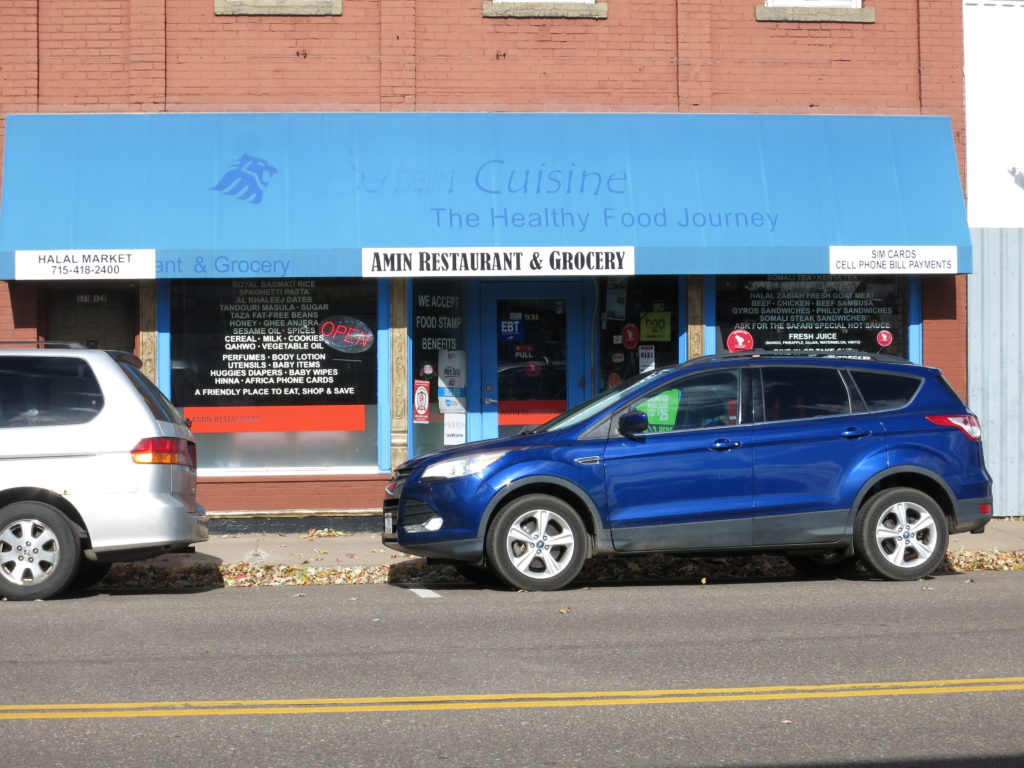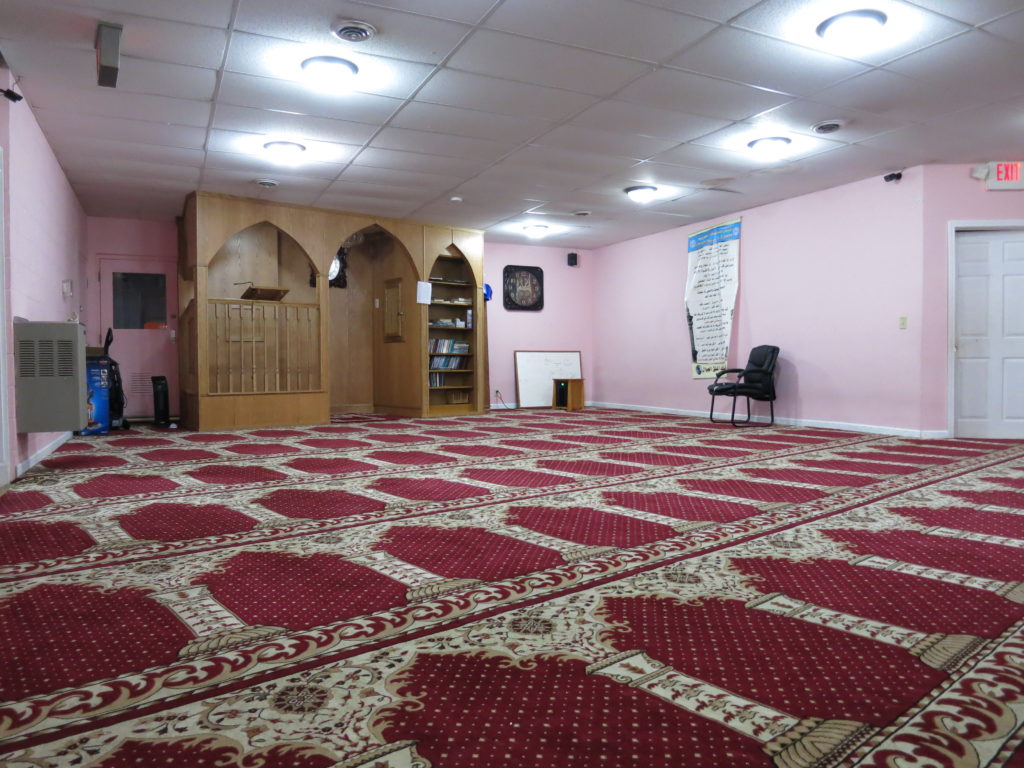What does Facebook smell like?
Stop into the Amin Restaurant on 531 East La Salle Ave. to find out.
A colorful array of items lay behind the cashier counter: deep red, emerald green and royal blue Muslim prayer rugs; bottles of Hebolene, Vatika, Amila and Tresemmé hair care products; and plastic-protected khimars of various colors and patterns for Muslim women.
“Facebook” and many other perfumes are sold at the restaurant on Barron’s La Salle Avenue.
Henna crème and candles sit behind the glass showcase where DurDur Bakery and Miswak wafer desserts are perched on top.
Jafar Hirmog stands against the backdrop of that merchandise.
His presence before the array of products mainly targeting Somali women is one of many, what some might call, contradictions.
He is a first-generation immigrant in a city which was 97 percent white in 2000.
Hirmog fled Somalia with his family and crossed into neighboring Nairobi, Kenya to escape the war and instability of his home country. The 41-year-old has been in Barron for six years, working at Amin Restaurant & Grocery and visiting Minneapolis on the weekends.

Visiting Minneapolis is a way for Hirmog to connect with a larger community of Somali people.
“[I miss it] a lot,” he said. “The culture, where you were born — you know everybody.”
Those bonds, along with a steep language barrier, explain why most Somalis only socialize with other Somalis, to the chagrin of some townspeople.
Isaak Mohamed is a neighborhood liaison between the Somalis and other Barron residents.
To hear him tell it, immigrants resist total assimilation out of love for their old and new countries; they want to bring the culture from Somalia, but not the violence.
That culture is often conservative and despite Mohamed’s insistence that the Somali community is a Democratic voting block, Hirmog is a Trump supporter.
“Most of (us) are conservative,” he explains. “That’s the way Somali are.”
Although Hirmog acknowledges parts of Trump’s immigration policy have been problematic — he says he knows friends who struggle to bring their families — he still supports him.
“I think he is a straight guy,” Hirmog says. “He keeps his word.”
And despite being unable to vote, Hirmog supports what he perceives as a cultural consistency with the Trump administration.
“Trump does not like the gay people, so [we] like Trump for his cultural way. In the ’90s, people thought if you touch people with AIDS, you get it like that,” he says, snapping his fingers. “Now, people with HIV get the medication, but many people (still) think that way.”
Hirmog, a Muslim, also says he supports the Trump cabinet’s religiosity.
“Respect for religion, that’s another thing,” he adds. “I don’t think (Trump) hates the Muslim, but everything is political: the terrorist guys, they become the Muslim image.”
Like most Somalis in Barron, Hirmog’s faith is strong and perhaps this explains how he can live smack in the middle of Wisconsin’s meth-use capital and seem relatively oblivious to it.

Alcohol, illicit drug use and even accumulating financial interest are all considered haram, or prohibited, by Islamic law.
While Hirmog took those traditions with him when he immigrated, there were realities he was happy to leave behind.
“In Somalia, they kill a lot of people. They don’t care who you are,” he says.
Hirmog was referencing the Somali Civil War between the Somali military, rebels and other groups, which has been raging in different phases for nearly 30 years. Since 1991, several hundred thousand civilians have perished from fighting and famine.
Compared to his old life, America is almost fictional.
“It’s like a movie when you are outside [the country] and you hear about America,” he says, his eyes still wistful. “Somalia is war. Back home, we are the victims. Here you have rights: to have a lawyer, to go to court.”
Now, he makes the best of both worlds.
A perfect example?
Before we leave, he suggests we return for dinner and try the restaurant’s new twist on an Italian oldie: spaghetti with goat meat.